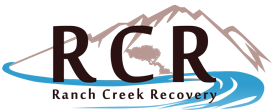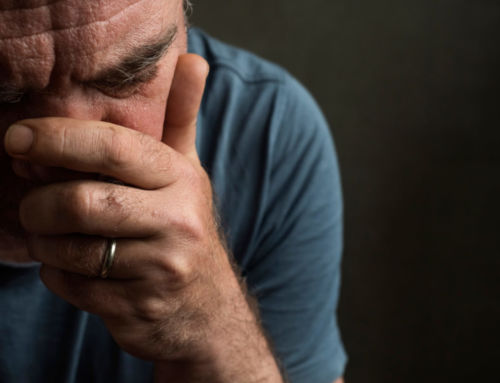These are truly unprecedented times. The level of stress and anxiety caused by the COVID-19 pandemic has not been experienced within this country in over a century. It has devastated businesses and strained our healthcare system to the point of breaking – pushing frontline healthcare workers to their limits.
Yet, through everything, these modern-day heroes have remained steadfast, committed to their duties, and dedicated to providing the necessary care to every patient who walks into their facilities. But the underlying question to this entire situation is: Who is caring for those providing the healthcare?
Every nurse, doctor and EMT who has struggled with addiction and excessive emotionality during the COVID-19 pandemic deserves the highest quality care to help maintain their health and wellbeing.
The Effect of the COVID-19 Pandemic on Healthcare Worker Mental Health
Throughout this pandemic, a majority of people were able to sit in the comfort of their homes to avoid the dangers associated with COVID-19. But essential workers, like those in healthcare and on the frontline, were forced to expose themselves to the virus every day.
Many of those providing critical care were exposed to conditions that have been compared to a war zone – continuously witnessing the direct effects of the pandemic as it spread throughout their communities. Some of the more concerning statistics associated with healthcare workers who have braved the COVID-19 pandemic include the following:
- 76 percent of healthcare workers reported experiencing both exhaustion and burnout, while 75 percent said they were feeling overwhelmed more often than not.
- Nearly 80 percent of healthcare workers with children reported that they were worried about exposing their kids to COVID-19 due to the demands of their jobs.
- 82 percent of healthcare workers reported experiencing emotional exhaustion and 70 percent reported serious sleeping problems, as well.
Risks to Healthcare Workers’ Mental Health
There have been a number of studies done with healthcare workers throughout the course of the pandemic, and the results have been significant. According to the responses, nearly half of participating healthcare workers reported experiencing serious psychiatric symptoms as a result of working through COVID-19.
In addition, two-thirds reported some level of clinical anxiety and nearly a fifth reported moderate to severe depressive symptoms. The results also showed the following:
- Nearly 20 percent met the criteria for post-traumatic stress disorder (PTSD).
- A prior history of mental health disorders significantly increased the likelihood of COVID-19-related psychiatric distress.
- Over 60 percent experienced some degree of serious anxiety.
- Nearly 50 percent had mild depressive symptoms and 17 percent had clinically significant depressive symptoms.
Many people struggling with mental health issues routinely turn to self-medicating to manage their symptoms and repress their emotions. This method of stress management through substance use is extremely concerning due to its prevalence among people dealing with mental health problems.
Substance Use Among Nurses, First Responders & Doctors
The fact is healthcare workers – like nurses, first responders, and doctors – are constantly facing emotionally-heavy and traumatic scenarios on almost a daily basis. From witnessing death and serious physical injury to personal loss and grief, those working in facilities like doctor’s offices and hospitals are constantly dealing with potentially traumatizing situations.
It is common to grab drinks after work or even consume prescriptions medications to manage personal emotions and drown out the worries of the day. Once COVID-19 hit, these existing trends only increased, driving even more healthcare workers to substance use to deal with the harsh realities they were now facing.
The Benefits of Dual Diagnosis Treatment
Having the courage to provide life-saving healthcare to those struggling during the pandemic requires bravery. However, finding the nerve to face your own co-occurring disorder and reclaim control over your life requires even more resolution. This is why locating a credible treatment center with the highest quality clinical staff and a proven track record for helping clients achieve sustained sobriety and long-term wellbeing is essential.
Ranch Creek Recovery’s approach to healing the whole person includes individualized treatment plans that offer options like:
- Amino acid therapy to address the physical imbalances caused by substance use disorders
- Equine-assisted therapy to increase effective emotional understanding
- Personalized physical activities that address each patient’s individual clinical needs, and
- So much more
Regardless of how COVID-19 has impacted your existence, there is no time like the present to take back control of your life and regain the health and happiness that enables you to provide the highest quality care to your own patients.
Holistic Dual Diagnosis Addiction Treatment at Ranch Creek Recovery’s Tranquil Rehab Center
Looking for a customized treatment plan that fits your unique recovery needs and offers an alternative to the traditional 12-step program? Ranch Creek Recovery’s holistic dual diagnosis treatment services can help you better understand and learn how to manage your mental health, stop abusing drugs or alcohol, and forge a fulfilling, clean future.
In an effort to grow our commitment in helping people overcome addiction and regain a fulfilling, sober life, we have opened a second residential treatment house in Murrieta, CA. The Doreen House offers the same dual diagnosis treatment program as our original residence, Bass House.
Learn more about our treatment approach or to find out how to get started, contact us today.













